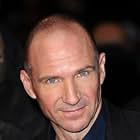The history of Hollywood's handling of the Nazis and its later depiction of the Holocaust they perpetrated.The history of Hollywood's handling of the Nazis and its later depiction of the Holocaust they perpetrated.The history of Hollywood's handling of the Nazis and its later depiction of the Holocaust they perpetrated.
- Awards
- 2 wins total
Photos
- Director
- Writer
- All cast & crew
- Production, box office & more at IMDbPro
Featured reviews
What I next found interesting was the reluctance to use he word "Jew" in a movie. Anne Frank was a Jewish girl who died in the Holocaust. Yet, apparently, the first film version of Frank's story goes out of the way not to mention why her family is being persecuted because they felt that non-Jews would not be able to identify with the events.
Interestingly, Steven Spielberg says that not many films have been made about the Holocaust. I would say that all depends on how you define "not many". There have been hundreds, starting with a slow trickle (5) in the 1940s and up to dozens a year since the 1970s...
Hollywood is an industry, of course, not a force for or against social justice. Both before and after the war, Hollywood's decisions about portraying the Holocaust hinged on the possibility of profits, or loss of profits, from depicting the Nazi horrors.
Seventy-five years after the rise of Naziism, we forget how much support Fascism then had in the U.S. and in western Europe. Producers, even though many were Jews, feared losing potential markets if they portrayed the true nature of the situation in Germany.
During the war, many filmmakers worked for the Army Signal Corps, and they accomplished great things. However, most American leaders were more interested in defeating the Germans than in saving the Jews and other minorities being shipped to concentration camps.
After the war, an unwritten code of silence arose. Possibly producers believed that an honest portrayal of the Holocaust would alienate audiences. Also, of course, postwar Germany was considered an important ally in the struggle against Communism, and politicians quietly urged that Hollywood turn its attention elsewhere. Another factor in downplaying the Holocaust was the wish to prevent people from asking, "Why didn't we do something?"
It wasn't until the 1970's that television producers realized that people would watch dramas about the Holocaust. Once the unspoken taboo was broken, Hollywood struggled to catch up. However, it's interesting to consider how long it took for films like "The Pawnbroker," "Sophie's Choice," and "Schindler's List" to make it to the screen.
All in all, an excellent, but discouraging film. Worth seeing, but definitely not a feel-good movie. We saw "Imaginary Witness" at the outstanding Rochester Jewish Film Festival. However, it should work well on a small screen
Did you know
- Quotes
[first lines]
Narrator: For over a half a century Hollywood films have dealt with Nazism and the Holocaust in complex and often contradictory ways. Marked by outrage and indifference, compassion and ignorance, the need to understand and the desire to forget. And yet while this most horrific chapter in modern world history happened far from America's shores, it has been American movies, perhaps more than any other medium, that have shaped how we understand and remember these events.
- ConnectionsFeatures Hinter Schloss und Riegel (1931)
Details
- Release date
- Country of origin
- Language
- Also known as
- Hollywood y el holocausto
- Production company
- See more company credits at IMDbPro
Box office
- Gross US & Canada
- $21,507
- Opening weekend US & Canada
- $630
- Dec 9, 2007
- Gross worldwide
- $21,507


















